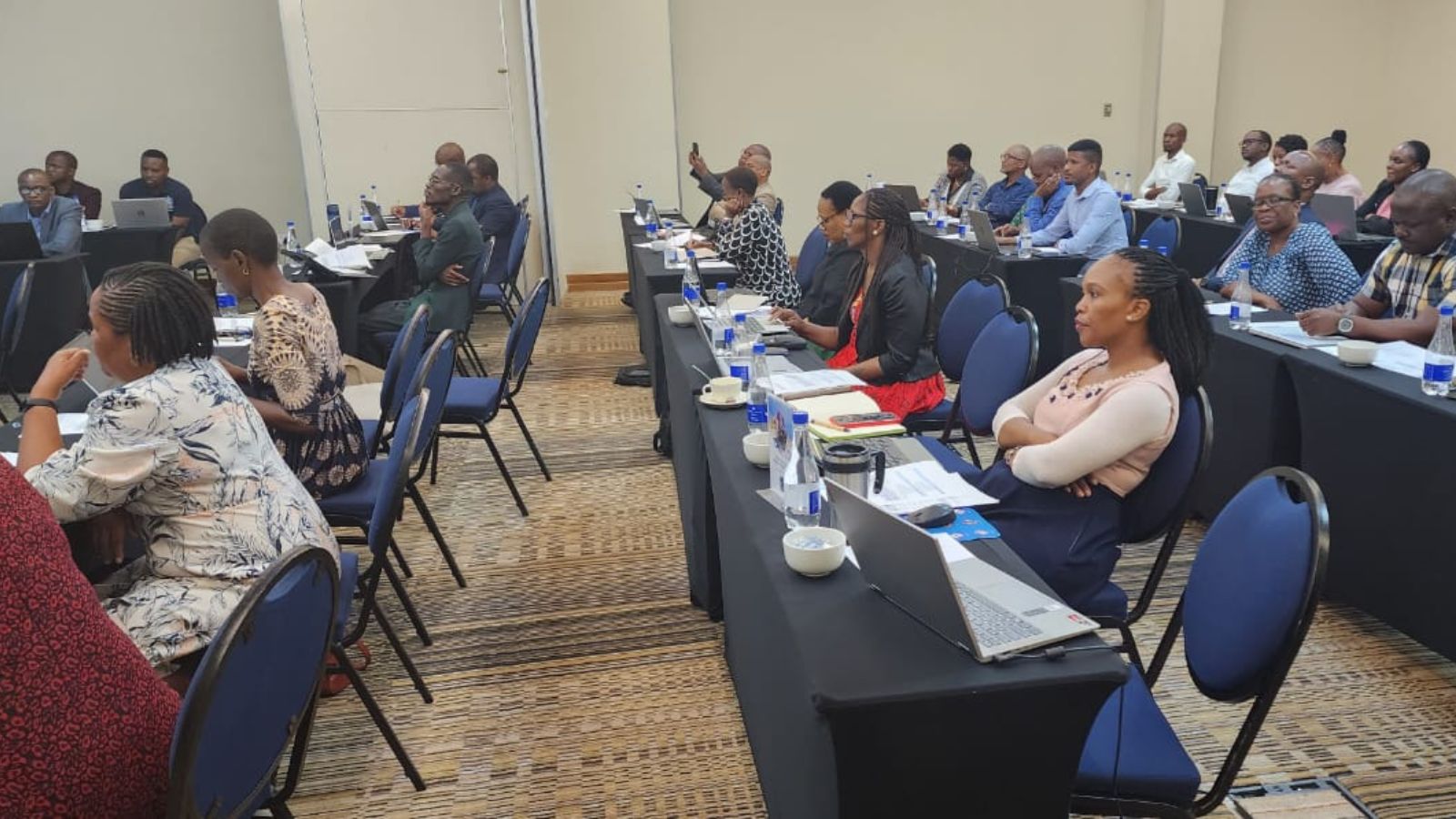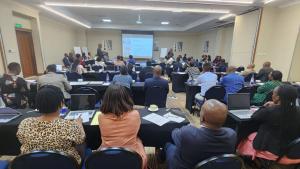Botswana Conducts Joint External Evaluation: A Collaborative Endeavor to Enhance National Health Security
The Government of Botswana, with partners and key stakeholders supported by WHO, conducted a Joint External Evaluation (JEE) self-assessment in a stride towards enhancing Botswana’s health security. This comprehensive assessment, led by the Ministry of Health Botswana, aims to assist the country in identifying the most critical gaps for health security using One Health and a multi-sectoral approach, single out opportunities that could enhance preparedness and response and to “Filter through” all available information to develop priority actions that would guide the country action plan following the external validation by experts.
The International Health Regulations (IHR2005), which govern the JEE, established by the WHO, serve as a framework for countries to prevent, detect, and respond to international public health emergencies. Regular evaluations, such as the JEE, play a crucial role in identifying strengths, weaknesses, and areas for improvement in a country's health system, contributing to the global effort to safeguard public health.
Botswana recognizes the importance of collective action in addressing global health challenges that threaten health security. The JEE self-assessment process involved a thorough and transparent assessment of a country's capacities in all the 19 technical areas of IHR core competencies. This first part of the JEE process will be complemented by the second phase which will bring together subject matter experts to validate the country's self-evaluation report. By conducting this evaluation, Botswana aims to fortify its health infrastructure and better position itself to tackle emerging public health threats.
Collaboration lies at the heart of the JEE, with the Ministry of Health Botswana taking the lead and working with WHO Botswana and local partners. The involvement of multiple stakeholders, including government agencies, non-governmental organizations, and the private sector, highlights a unified commitment to the health and well-being of the nation. This multi-stakeholder assessment significantly emphasizes the One Health approach, recognizing the interconnectedness of human, animal, and environmental health, and the need for a coordinated and collaborative response to health threats. In the context of Botswana's JEE, this involves a comprehensive assessment for Botswana to enhance its preparedness and response mechanisms, ensuring a more resilient and adaptive health system that addresses the complex interplay between human, animal, and environmental factors.
Dr Lebapotswe Tlale, Acting Executive Director, Botswana Public Health Institute (BPHI), from the Ministry of Health emphasizes the significance of this evaluation in reinforcing the country's health security. " JEE is not merely an assessment; it is a strategic investment in our nation's ability to respond effectively to health crises. By working closely with WHO and our local partners, we are not only evaluating our strengths and weaknesses but actively shaping a resilient and responsive health system." Dr Lebapotswe Tlale said during the JEE meeting in November 2023.
WHO Botswana is pivotal in providing technical expertise and facilitating the evaluation process. Dr Juliet Bataringaya, Officer-In-Change WHO Country Office Botswana, commends Botswana's proactive approach, stating "Botswana's commitment to the JEE is commendable. This collaborative effort is a testament to the country's dedication to upholding international health standards and protecting its population from health threats."
The partners including the US Centers for Disease Control and Prevention (CDC), Ministry of Agriculture, Environment Natural Resources Conservation and Tourism, Transport and Public Works, and the University of Botswana to mention a few, contributed their specialized knowledge to ensure a comprehensive assessment. The diversity of perspectives ensures a well-rounded evaluation, taking into account the multifaceted nature of public health.
Following the completion of the JEE in Botswana, the next crucial steps involve the validation and finalization of the self-assessment report. This comprehensive evaluation serves as a pivotal tool for assessing the country's health security capacities and identifying areas for improvement. To ensure the accuracy and reliability of the findings, it is imperative to engage in a rigorous validation process, involving key stakeholders and experts. Subsequently, the endorsed self-assessment report will be presented to leadership for their approval and support. This endorsement is essential to foster a collaborative approach towards addressing the identified gaps in health security. Once officially endorsed, the report will be shared with the WHO Regional Office for Africa (AFRO), facilitating regional cooperation, and strengthening collective efforts in enhancing Botswana's overall health security preparedness.
